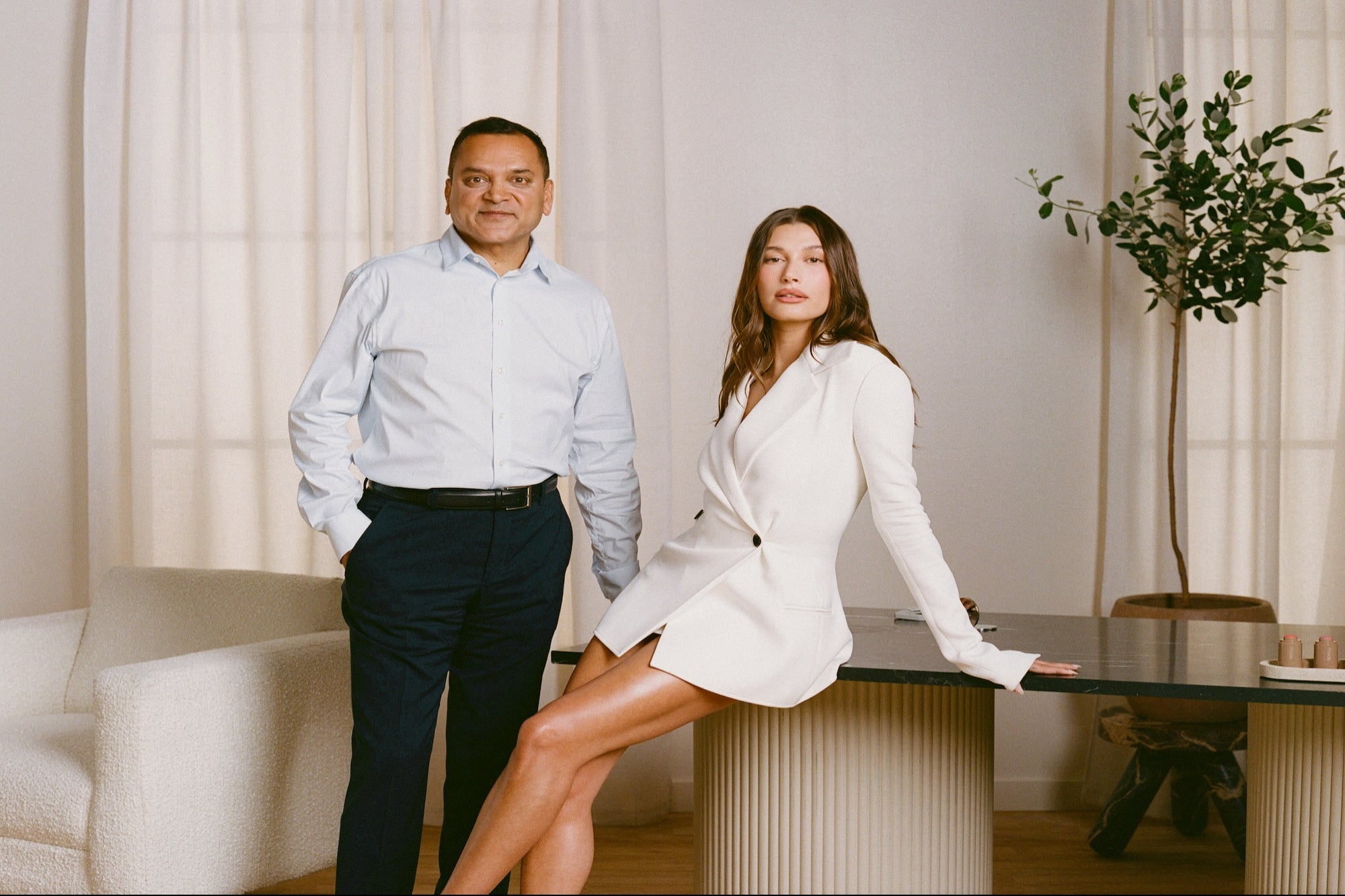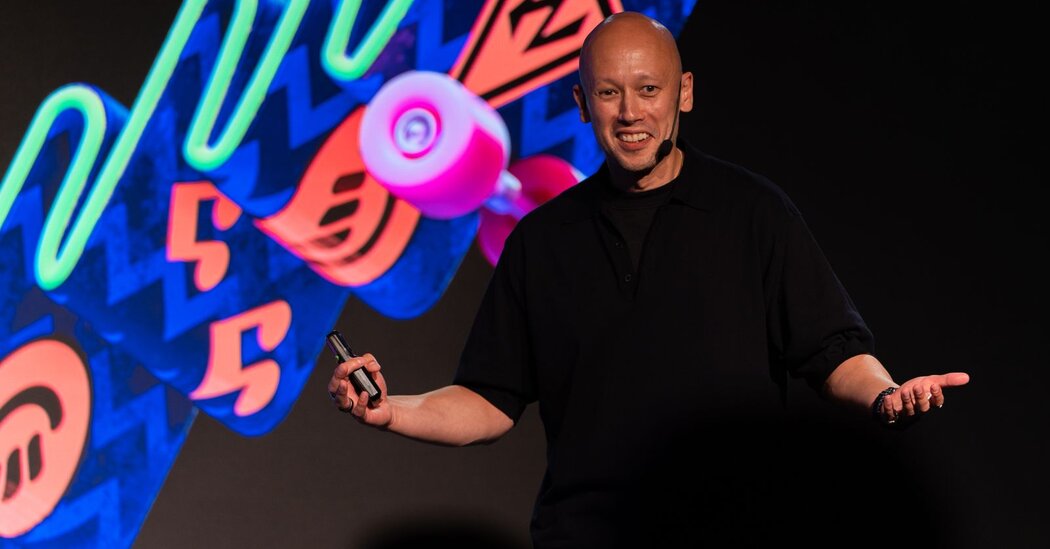Cosmetics brand e.l.f. (eyes, lips, face) is acquiring Hailey Bieber’s Rhode, the skin care brand the model and entrepreneur launched in 2022. The deal is worth $1 billion, according to a press release.
“We can’t wait to bring Rhode to more faces, places, and spaces. From day one, my vision for Rhode has been to make essential skin care and hybrid makeup you can use every day,” Bieber, 28, said in a statement. “Just three years into this journey, our partnership with e.l.f. Beauty marks an incredible opportunity to elevate and accelerate our ability to reach more of our community with even more innovative products and widen our distribution globally.”
Related: Meet the Dermatologist Behind Rhode, Hailey Bieber’s Hit Skin Care Brand
Rhode sells a selection of skin care products (toner, moisturizer, lip peptide gloss) with the goal of making “one of everything really good.” She teamed up with BeautyStat entrepreneur and chemist Ron Robinson and dermatologist Dr. Dhaval Bhanusali to help with the formulations.
“E.l.f. Beauty found a like-minded disruptor in Rhode,” said e.l.f. Chairman and CEO Tarang Amin, in a statement. “Rhode further diversifies our portfolio with a fast-growing brand that makes the best of prestige accessible. We are excited by Rhode’s ability to break beauty barriers, fully aligning with e.l.f. Beauty’s vision to create a different kind of company.”
“Rhode is a beautiful brand that we believe is ready for rocketship growth,” Amin added.
Related: Serena Williams Launches a New Company That She’s Been Working on for 6 Years
Rhode reported $212 million in net sales in the 12 months ended March 31, 2025, and plans to launch in Sephora throughout North America and the U.K. before the end of the year, according to the statement.
Bieber said she is stepping into an “expanded role of Chief Creative Officer and Head of Innovation.”
Rhode was the No. 1 skin care brand in Earned Media Value in 2024, representing 367% year-over-year EMV growth, according to the release.
E.l.f. Cosmetics was founded in 2004 (originally everything was only $1!) and has reported 23 straight quarters of growth.
The sale has been approved by the e.l.f. Beauty Board of Directors, according to the release.
Cosmetics brand e.l.f. (eyes, lips, face) is acquiring Hailey Bieber’s Rhode, the skin care brand the model and entrepreneur launched in 2022. The deal is worth $1 billion, according to a press release.
“We can’t wait to bring Rhode to more faces, places, and spaces. From day one, my vision for Rhode has been to make essential skin care and hybrid makeup you can use every day,” Bieber, 28, said in a statement. “Just three years into this journey, our partnership with e.l.f. Beauty marks an incredible opportunity to elevate and accelerate our ability to reach more of our community with even more innovative products and widen our distribution globally.”
Related: Meet the Dermatologist Behind Rhode, Hailey Bieber’s Hit Skin Care Brand
The rest of this article is locked.
Join Entrepreneur+ today for access.

